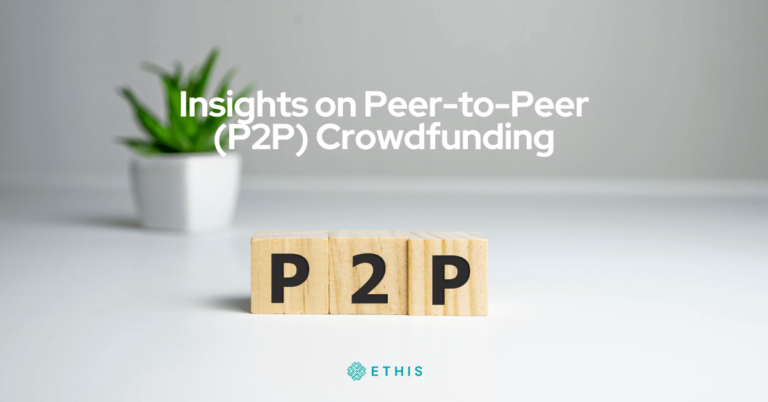
By Salman Abdurrubi Perwiragama (MSc Candidate at INCEIF, Malaysia)
The nature of money has been evolving as economies are always dynamically changing. In the early days, people started their transactions with the barter system before currencies came into being. Due to the shortfalls of the barter system, primarily because of transaction needs, mankind invented currencies as the medium of exchange. Currency provides ease for people in terms of its nature of portability. In the final stage of money development, the fiat money system and fractional reserve banking (FRB) regime resorted to commercial banks as the prominent party in the economy to create money.
Today’s money is not only coinage and banknotes (paper currency). The majority of circulated monies in the economy are in the form of bank ledgers (digital accounting records of commercial banks). According to several modern economists, particularly from the Austrian school of thought, FRB has contributed to financial crises with the nature of extensive money creation resulting from massive loans commercial banks are extending. From a Shariah perspective, scholars are debating whether the banking system (both conventional and Islamic) adopting FRB is shariah-compliant.
Approving the opinion of Shariah scholars and economists who are opponents of FRB, this article will make case for the benefit of financial technology (Fintech) in reducing the adverse impact of extensive money creation the commercial banks are creating. In particular, the initiation of Peer-to-Peer (P2P) crowdfunding that Fintech companies are facilitating will be the focus of the discussion.
What is money creation?


It is crucial to understand that creating money is not printing or issuing a physical form of currency. It used to be that form when the modern bank was not invented yet, whereby the commercial transactions in the economy were settled by monies with intrinsic value such as the gold dinar and silver dirham.
However, in this modern day, especially after the break of the Bretton Wood System in 1971 when currencies were detached from gold, the creation of money could be done through commercial banks where they can receive deposits and, with a certain percentage of mandatory reserves, lend them out to customers. The Central bank of the country determines the ratio of statutory reserves. This is the so-called fractional reserve banking (FRB) system. In other words, money creation, or money issuance, is the process of increasing a country’s or an economic or monetary region’s money supply.
Here is a short illustration of how such a system works. First of all, the central bank of a country issues money for official legal tender, termed as base money, let’s say $1000. This money can be deposited into commercial banks with a reserve ratio of 10%. The FRB system enables this $1000 base money to evolve into a total of $138,862.94 created by 22 commercial banks. Such an evolution of the total money supply is also known as the money multiplier. The accounting ledger of this money creation is attached below.
As a result of the FRB system, monies circulated in the modern economy comprise (1) M0: the total of all physical currency including coinage, (2) M1: the total amount of M0 plus the number of demand deposits, travellers’ checks & other checkable deposits, and (3) M2: M1 plus most savings accounts, money market accounts, retail money market mutual funds, and small denomination time deposits (certificates of deposit).
Economists and shariah scholars’ views of money creation in the FRB regime


Because it is by nature a human-made system, FRB is subject to proponents (such as Adam Smith, John Maynard Keynes, and Henry Thornton) as well as opponents (such as Friedrich A. Hayek, Milton Friedman, James Tobin,) of such a prevailing system in the modern economy. The discussion of this article will highlight the opponents of the FRB system because it results in problems that P2P Crowdfunding could contribute to balancing the money creation process in the economy.



Maurice Allais, a French economist who won the Noble Prize in 1988 argued that the FRB system inflames economic crises. As the alternative, Full Reserve Banking is the solution as it might help the government to reduce the credit expansion and control the money supply.
Murray Rothbard in 1995 and Ahmed Meera in 2004 observed the adverse effects of money creation, which include increases in the money supply and inflation rates, which ultimately result in recessions and crises. In addition, according to Jorg G. Hülsmann in 1996, Larbani and Meftah in 2013, money creation also has detrimental impacts on social, political, and religious dimensions. Even, it diminishes the currency’s value. Moreover, it contributes to economic and financial instability, which exacerbates the vulnerability of the banking sector and puts it at risk of failure. It fosters market indiscipline, which results in indebtedness. It appears that the disadvantages of this interest-based money production method outweigh the benefits.
Besides, Shariah scholars are concerned with a Shariah perspective. FRB has elements of riba (usury) that goes against the Maqasid al-Shariah and therefore can be termed illegal or haram from an Islamic perspective. Moreover, the FRB system cheats the ownership in the economy as a whole and allows transferring to create fiat money.
Is it permissible from a Shariah perspective for a bank to seize people’s assets and lend them to others for productive or consuming purposes whenever someone demonstrates a need for these assets? For instance, when a person requires a house, the bank creates new money and uses it to acquire the property from the developer and either loan it to the participant at a fixed rate of interest or sell it profitably, as is the case with Islamic financing done by a bank?
Why P2P crowdfunding provides a solution to the negative impact of money creation


P2P Crowdfunding creates money based on real sector projects. Regulation on fintech that restricts lending-borrowing activity only would be one of the advantages provided by this industry. Unlike bank loans which can be used even to speculate or gamble in financial instruments in the market, P2P CF will only finance the project proposal as assessed. The funds gathered from capital providers (fintech investors) are channelled proportionately to be utilized by capital seekers (Enterprises).
This model avoids the money multiplier which results from the fractional reserve banking (FRB) system. As discussed above, an extensive money multiplier inherently encompasses inflation that cheats the wealth of people in the economy. The modality of P2P CF practically counters the proponents of the FRB system arguing that the money multiplier brought about through FRB increases liquidity in the market.
P2P Crowdfunding goes well with the Shariah perspective of money in the economy which represents a medium of exchange other than a commodity. Applying Shariah contracts such as mudarabah (labour-capital venture) and wakalah (agency) will treat funds collected within the P2P CF Platform as a medium of exchange that will be used by enterprises to generate revenues based on real sector projects.
As such, money will not generate more money based on the price of the loan (interest) as the compensation for deferred repayment of funds to investors. Thus the use of Shariah contracts in the P2P CF platform assures ownership for every contracting party which can elude the problem of injustice within the financial industry of the modern economy.





Top Posts
Islamic P2P Crowdfunding Explained
Halal Money Matters: How Muslims Can Balance Deen and Dunya with Smart Islamic Finance
Halal Investments for Singapore Muslims? It’s time for a shake-up in the Islamic Investments scene.
Smart investment for making Halal money
3 Reasons Why Property Crowdfunding is the Smart Investment for You